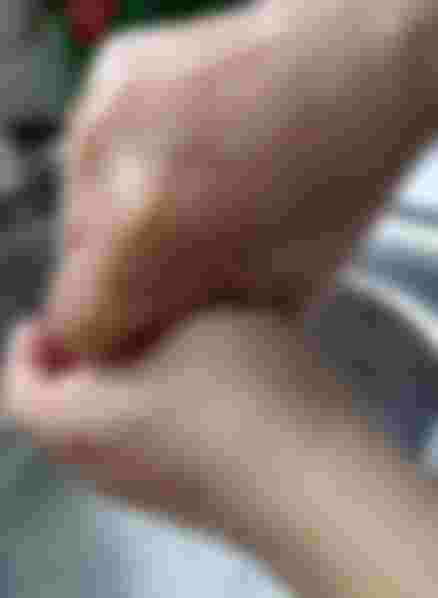First line of defense
Did you know that handwashing is your first line of defense against disease?
Yup, protecting yourself from getting sick doesn't really cost much, nor does it have to involve some complicated ritual. All it takes is washing your hands.
According to Dr. Roderico Ofrin, who is the World Health Organization's (WHO) Representative to India, "Hand washing with soap and water has been established as a cost-effective public health intervention."
By the way, Dr. Ofrin is a Filipino, so a big round of applause for him for landing that prestigious position. He also happens to be a childhood friend, and I am super proud of him.
Back to washing hands...
In addition, universal access to handwashing facilities, meaning soap and water, is a sustainable development goal (SDG) set by both the WHO and UNICEF.
In an interview, Dr. Ofrin emphasized that you can prevent so many diseases just by always being aware of regularly washing your hands.
Unfortunately, there are many parts of the world where communities have no access to clean, running water and this is a big factor contributing to health problems especially in rural areas.
After setting up such facilities, there is the need to educate everyone in the community on the importance of washing their hands, not just with water but with soap as well.

In case you've missed this lesson, washing with soap and water removes germs that you may have picked up from anywhere that you touched. Even surfaces that we think look immaculate may still have germs. How much more objects and surfaces that a lot of people handle or touch?
Unwittingly, we often have the habit of touching our face, eyes, nose, mouth and if your hands are dirty, you run the risk of transmitting germs and bacteria that are disease-carriers.
That's why the more you wash your hands, the less the germs accumulating in your skin which helps prevent infection.
If you're still not convinced why we need to wash our hands regularly and well, think about this: handwashing can save one (1) in five (5) children from contracting respiratory illnesses. It reduces respiratory illness by 16% to 21%.
And there's more.
Germs from unwashed hands can contaminate food. So just imagine you touching food with dirty hands, then putting this in your mouth, all the while carrying germs, chemicals, and dirt that can give you a cold or the flu or even worse diseases like meningitis or chicken pox.
On the flip side, proper hand hygiene reduces the number people who get diarrhea by 23% to 40%. And can save 1 in 3 kids from getting diarrhea.
And don't scoff at diarrhea thinking it's not serious. It can dehydrate the body so quickly, that not properly replenishing lost fluids can land you in the ER, or even result in your death at the worst stage.
Dr. Ofrin says that handwashing is "health promotion in its purest sense."
Okay, so now you're thinking how often do I wash my hands... Each time you handle or touch something that can likely carry germs.
It's imperative to wash your hands after using the toilet, that's for sure. And when you enter the house from wherever you came from.
Door knobs. Steering wheel. Keyboards. Tabletops. Staircase railing. Public transport. Money. All these are carriers because so many people come into contact with them.
But wait! You do know it doesn't count as real, effective handwashing if you merely run your hands or fingers quickly under an open faucet, right?
No. No. No.
Health experts recommend we wash our hands for at least 20 seconds. If done properly, it should take that long. Sing a little tune to help time the process.
Wash properly
Proper handwashing means first wetting your hands a little, then lathering it with soap, either a bar or liquid.
Scrub the back of your hands then palms, including between the fingers. Cup your fingers (excluding the thumbs) and hold it together while rubbing them against each other, then wash the thumb with one hand using a rolling motion, then switch hands. Finally draw circles in your palms with your fingertips to help clean the nails as well.
Rinse well to remove all soap residue. This will also ensure you've gotten rid of the germs and dirt.
Dry your hands, with a clean hand towel or paper towel, or just air-dry them if there's nothing to wipe them on.

Remember, regular handwashing is for your protection.
In India, proper hand sanitation was already being practiced even before the emergence of COVID. And community-based studies showed there was high knowledge and awareness about the importance of hand hygiene and how to do it properly.
Regular handwashing is among the minimum public health safety standards that we are always being reminded about during the pandemic. And for good measure.
How India does it
Dr. Ofrin said that they follow the 3Ws and 2Vs in India as a public reminder to minimize transmission of the virus.
Wear a mask, Wash your hands, Watch your distance (physical distancing). Get Vaccinated and stay in fully Ventilated indoor spaces.
Of course, they have a very efficient and organized system of testing, contact tracing and early treatment that has been key to addressing COVID infection surges due to the numerous variants that have mutated.
Even when COVID is no longer a scourge, it doesn't mean we have to stop the practice of regular handwashing. Germs bring all sorts of diseases and unless we want to end up being hospitalized and spending more for treatment, let this one habit be our inexpensive way of protecting ourselves and staying healthy.
Lead image and handwashing demo image are original


What an informative article of yours! It's really to protect ourselves by the threat of infectious disease or even virus by washing our hands the right way. Anyways, nice meeting you here. <3